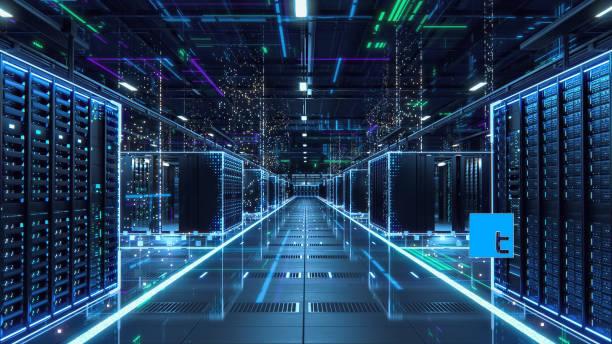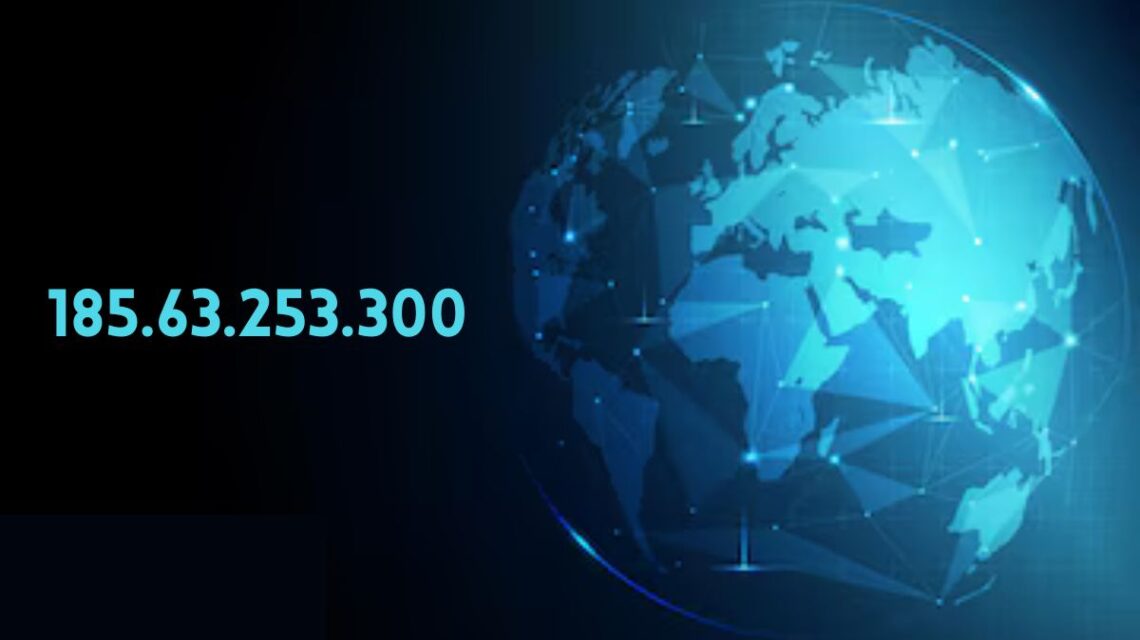Table of Contents
How often do you think of an IP address? No matter how frequent or rare it is, we would like to tell you why it matters. An IP address ensures that you are connected to the Internet accurately. It’s behind the scenes workings are the reason an email gets sent, a show gets streamed, or a webpage gets opened, including its unsung batman of the address, 185.63.253.300.
Do you want to find out more regarding the inner workings of an IP address and get familiar study it’s structure? If this is a yes, you have landed in the right spot. For all the beginners out there, this article is your one-stop guide on everything to know concerning IP addresses like 185.63.253.300.
What is an IP Address?

An IP address (Internet Protocol) serves as a unique identification number for every device on a network. Consider it a digital passport for your device, which helps it send and receive information securely and efficiently. There are two known versions:
IPv4 (for example: 185.63.253.300) – The earlier version, which has four segments, called octets, classified based on dots.
IPv6 (for example: 2001:0db8:85a3::8a2e) – This new format was developed in order to solve the problems presented with IPv4 by providing a significantly greater number of possible addresses.
Fundamentally, an IP address does the same thing a physical address would: it specifies which location to send information and data to. Therefore, it directs traffic to the proper destination.
A Closer Look at 185.63.253.300
Here is where it gets more fascinating. The IP 185.63.253.300 serves as an illustration of an IPv4 address, though there is a minor complication. “300,” The fourth part, exceeds the permissible decimal range of IPv4 addresses (0–255). Although the address is not usable because of this, contemplating it is crucial in understanding the architecture of IP addresses and their components.
Examining the Anatomy of 185.63.253.300
185 – Denotes broader network range 63 – Indicates specific subnets within that network 253 – Further narrows down the paths for routing 300 – Improperly formatted section, which demonstrates the need for correct structure in IP standards. This example is useful when trying to diagnose network problems.
Enhancing your comprehension of the IP address structure enables you to resolve network problems effectively.
Why Are IP Addresses Important?
Facilitating effective communication between devices requires IP addresses. Without IP addressing, the Internet would completely collapse.
Supporting Functions of IP Addressing:
Routing Data: IP addresses act in the same way as the postal address of a house. It is an identifier that tells where a given data packet should be sent.
Enabling Internet Participation: With the help of IP addressing, users can listen to recordings, view websites, and get other services in a timely and accurate manner.
Each time you join a video conference or access an internet-based application, IP addressing works behind the scenes, ensuring things go smoothly.
How IP Addresses Are Used
As well as enabling seamless daily Internet navigation, IP addresses have distinct applications in different fields. Here are some example use cases:
Web Hosting
Numerical addresses such as 185.63.253.300 may be allocated to websites for hosting purposes. Dedicated IPs allow for control when SSL certificates are issued, resulting in quicker response times.
Network Management
Organizations utilize IPs for tracking and managing devices on private or public networks. This improves operational productivity and enhances communication, and streamlines processes.
Data Analytics
Companies are able to glean insights about users and their locations by deriving information from the site visitation logs using IP addresses.
Security
As tracking and cyber threat mitigation tools, IPs are essential. These enable the flagging of suspicious activities and the obstruction of unauthorized access.
Inter-device Communication
IP enables multiple devices to connect and communicate within the same network, be it an office printer, smart home gadgets, etc.
Challenges with Specific IP Addresses Like 185.63.253.300
- Although the majority of IP addresses work without interruptions, you may run into the following problems:
- Blocklisting: An IP associated with spam or malicious activity may result in reduced access to services or inability to communicate.
- Connection Errors: Incorrectly configured IP addresses may lead to network outages.
- Geographic Blocking: Certain IPs are confined due to geolocation boundaries, which limit access to certain online tools or services.
- Resolving Common IP Problems. If you are having issues with an IP address such as 185.63.253.300, here are some problem-solvers: Restart Your Router: This has the potential to mitigate some connectivity hurdles if the problem is with IP refresh.
- Check For Blocklisting: Several online utilities can check if an IP address is flagged. If there are issues, reach out to the ISP.
- Use a VPN: A virtual private network allows you to cloak your geographical location and encrypts your online engagements.
- Reconfigure Your Network: Error-free configurations of certain network parameters prevent most IP address issues.
How to Optimize Your Networking Knowledge
- Basics of IP addresses highlight a person’s capabilities with troubleshooting and navigating the cyber world. Here is the guidance for improving the skills:
- Get to understand the public and private IPs, as both serve different purposes within networking.
- Please pay attention to IPv6, especially as it burgeons due to its greater capacity.
- Take advantage of traceroute or ping in diagnosing and troubleshooting networking problems involving IPs.
- Current developments for safeguarding one’s IP address from online attacks should be continuously monitored.
Wrapping Up
An IP address is far more than a mere string of numbers, as it plays an essential role in modern communication. Absence of structure in contemporary life would be akin to routing data packets towards websites and personal devices, something impossible without the underpinning provided by IP addresses.
Although the specific IP 185.63.253.300 may not work due to its format, the reasoning makes its exploration beneficial to those interested in understanding the Internet.
Broadening your grasp in regards to IP addresses will empower you to navigate, troubleshoot, and explore networking in conjunction with a world that is increasingly interconnected.


